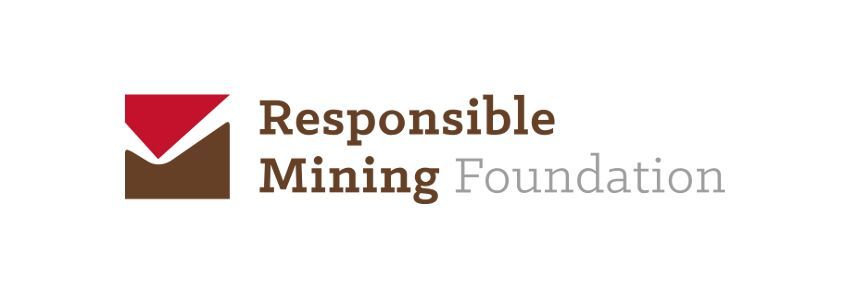Responsible Mining Foundation to close in 2022: passing on the baton for responsible mining
02.05.2022We regret to announce that the Responsible Mining Foundation (RMF) will close and cease activities in the next few months. This is due to a lack of independent long-term co-funding that would allow us to continue the in-depth research involved in producing the RMI Reports and other related studies, as well as the broad stakeholder engagement that form the basis of RMF’s impartiality, credibility and significance to a wide range of stakeholders.

Since we started in 2012, the RMF has articulated what society expects from responsible mining companies to ensure that mining benefits the economies, improves the lives of peoples and respects the environments of producing countries.
RMF’s closure comes at a time when progress on responsible mining is needed more than ever as we witness the disparity between the harmful impacts of mining on peoples and environments and the benefits promoted by the industry. The interest is certainly there (for example, over 1100 people from 96 countries registered for the recent launch of the RMI Report 2022) but the evidence of change on the ground is still scarce.
Looking back at RMF’s work and focus, a few of the many highlights include:
Articulating societal expectations. The RMF’s framing of responsible mining since 2012 has been achieved with the inspiring help of a diverse range of mining-affected peoples, experts and other stakeholders from many parts of the world. These societal expectations are captured in the RMI Framework on which the RMI Reports of 2018, 2020 and 2022 have been based, and RMF has maintained this emphasis on societal expectations through our publications, tools and multiple stakeholder engagement activities. As part of RMF’s legacy, the RMI Framework is a resource that can help all stakeholder groups in their work on responsible mining.
Emphasising mine site data. RMF has highlighted the often-overlooked importance of disaggregated mine site data – in the places where harmful impacts are concentrated – during our work to assess the policies and practices of many large mining companies, representing between 25 % and 30 % of the value of global production with operations in over 50 countries, This in line with the original Mining, Minerals and Sustainable Development (MMSD) recommendation for greater access to information as a means to build trust, enable cooperation and support public participation in decision-making by affected stakeholders.
Encouraging continuous improvement. The RMI Reports provide learning tools such as the interactive library that provides over 6500 documents on companies’ policies, management standards, performance reviews, etc. in line with the Open Data Principles. It also provides a selection of numerous leading practices that acknowledge innovative and good practice. These resources will remain available to further enable learning across the industry.
Supporting community-company engagement. At the request of numerous mining-affected groups, the RMF co-developed the Mine Site Assessment Tool (MSAT) – an easy-to-use tool to help stakeholders engage independently with any of the tens of thousands of mine sites around the world. It provides an entry point for constructive engagement, agenda setting, and awareness-raising on the basics of responsible mining. RMF’s recent report on local applications of the MSAT provides further learnings and case studies that can guide others wishing to use the tool in their own environments.
In all of this detailed work, we have been magnificently supported by the commitment and contributions of a wonderful constellation of concerned stakeholders, experts, peers and mining-affected peoples from around the world. We thank each of you, wherever and however we met or connected – this has been the effort of many minds and courageous voices both in big cities and in small villages in remote mining areas. It has been our privilege to listen and learn from each of you and to try to represent the normative expectations of society at large within the limits of fair, measurable, assessable and evidence-based research.
At the same time we wish to honour the vision of our founders and the trust and support of our funders, in allowing the RMF our independence of voice, systemic reach and breadth of scope in support of responsible mining.
There is so much more to be done before responsible mining becomes a reality. And we all have a role to play. As consumers and citizens we are the beneficiaries of the products of mining, so one can in fact say that ‘we are all mining’. It remains up to each of us to continue to speak up and ensure continuous momentum to achieve the normalisation of responsible mining. RMF research has shown that it can be done , so while we acknowledge the sincere efforts of many in the mining industry, we also look to formal and informal leaders in all walks of life to help realise both just and responsible mining.
The time for such change is overdue.
Looking ahead
Twenty years after the landmark publication of the MMSD report in 2002 that set so much in motion, RMF will be publishing a final systemic gap analysis of what remains to be done collectively, by companies and those who influence them, if we are to make real progress on responsible mining.
Moreover, the research, publications, tools, data sets, scoring frameworks and raw data that we know are frequently sourced by ESG investors, industry, civil society, academics and others will remain accessible in multilingual formats on the websites of the Foundation and the various RMI Reports for a number of years ahead.
